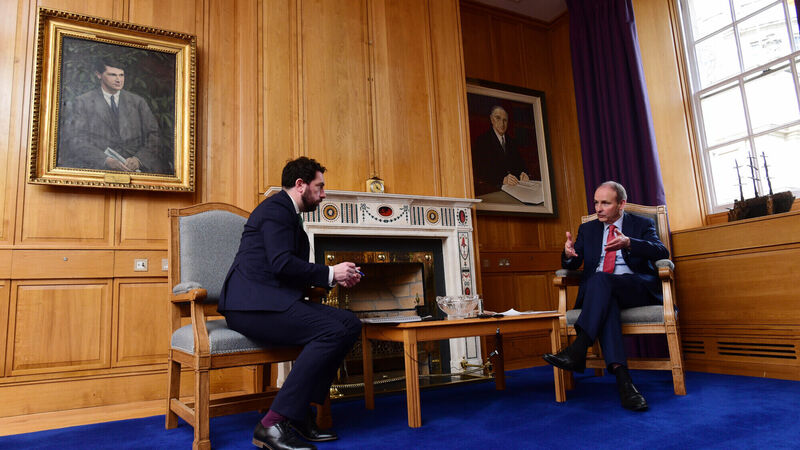Micheál Martin treads carefully along road to recovery

The Taoiseach Micheál Martin in his office at Government Buildings. Picture: Moya Nolan
The country he leads is in the grips of a year-old pandemic with no immediate end in sight.
Try from €1.50 / week
SUBSCRIBELife is not easy for Taoiseach Micheál Martin.
The country he leads is in the grips of a year-old pandemic with no immediate end in sight.
Already a subscriber? Sign in
You have reached your article limit.
Annual €130 €80
Best value
Monthly €12€6 / month
Introductory offers for new customers. Annual billed once for first year. Renews at €130. Monthly initial discount (first 3 months) billed monthly, then €12 a month. Ts&Cs apply.
CONNECT WITH US TODAY
Be the first to know the latest news and updates
Newsletter
Keep up with stories of the day with our lunchtime news wrap and important breaking news alerts.

Select your favourite newsletters and get the best of Irish Examiner delivered to your inbox
Tuesday, February 10, 2026 - 9:00 PM
Tuesday, February 10, 2026 - 12:00 PM
Tuesday, February 10, 2026 - 9:00 PM
© Examiner Echo Group Limited